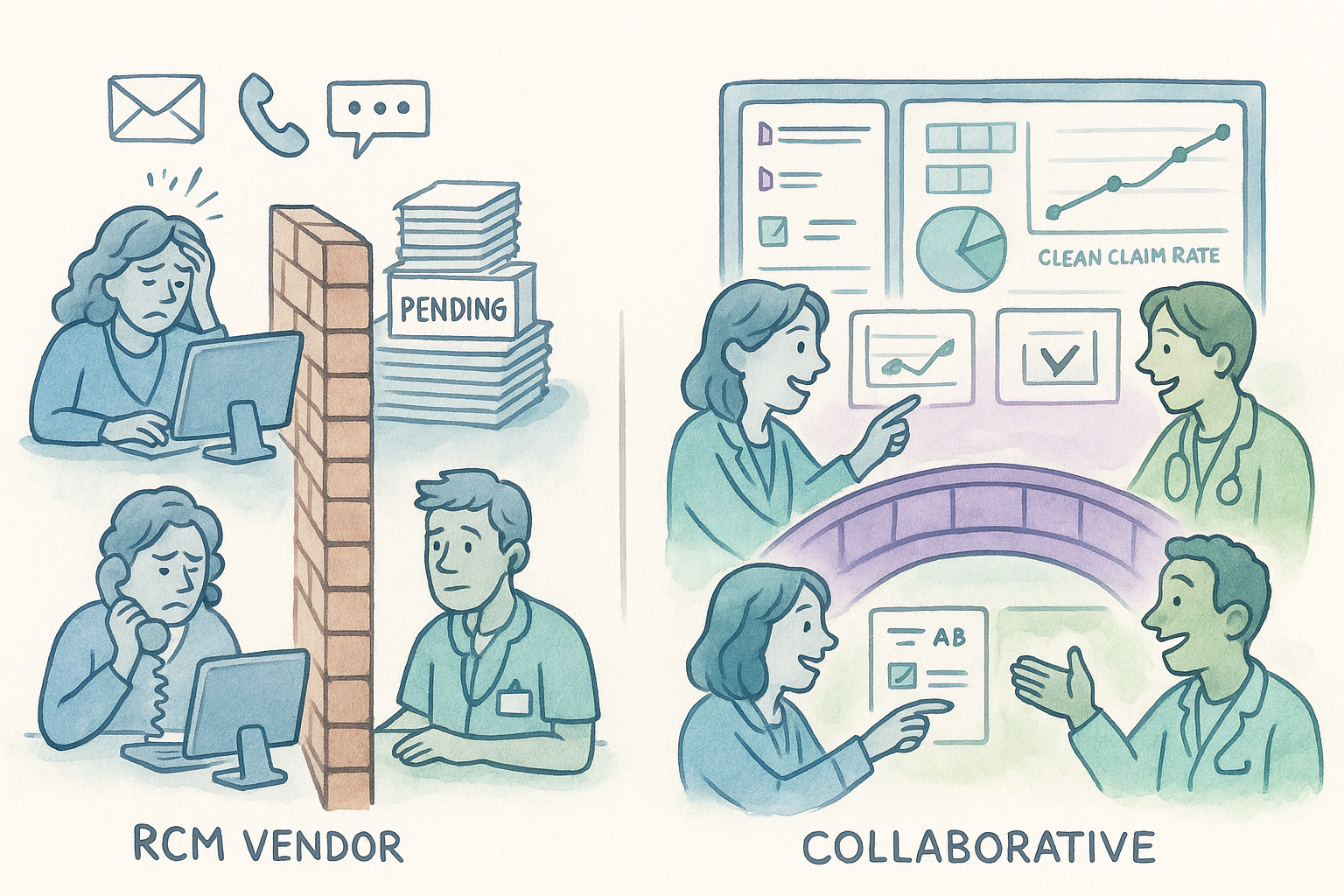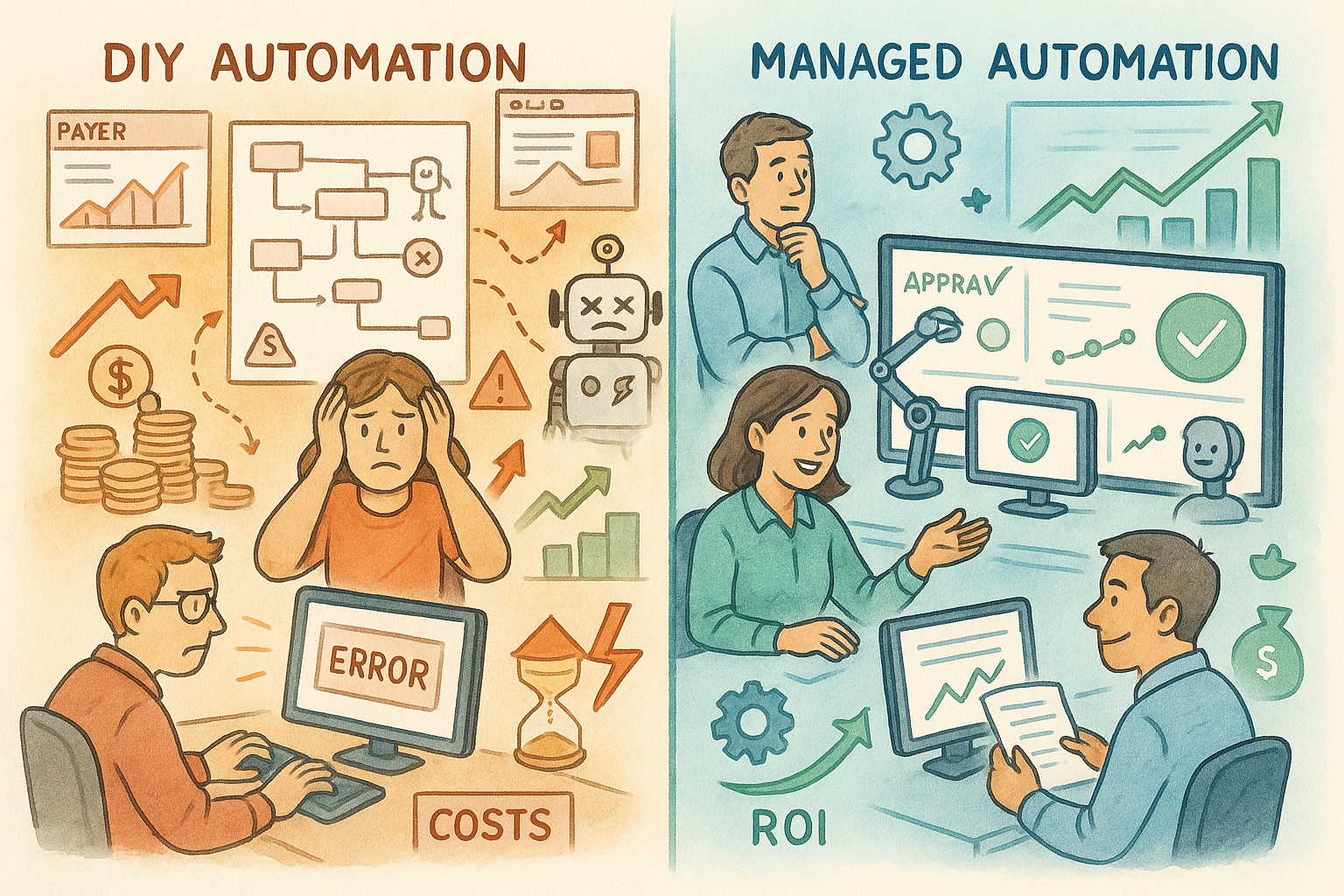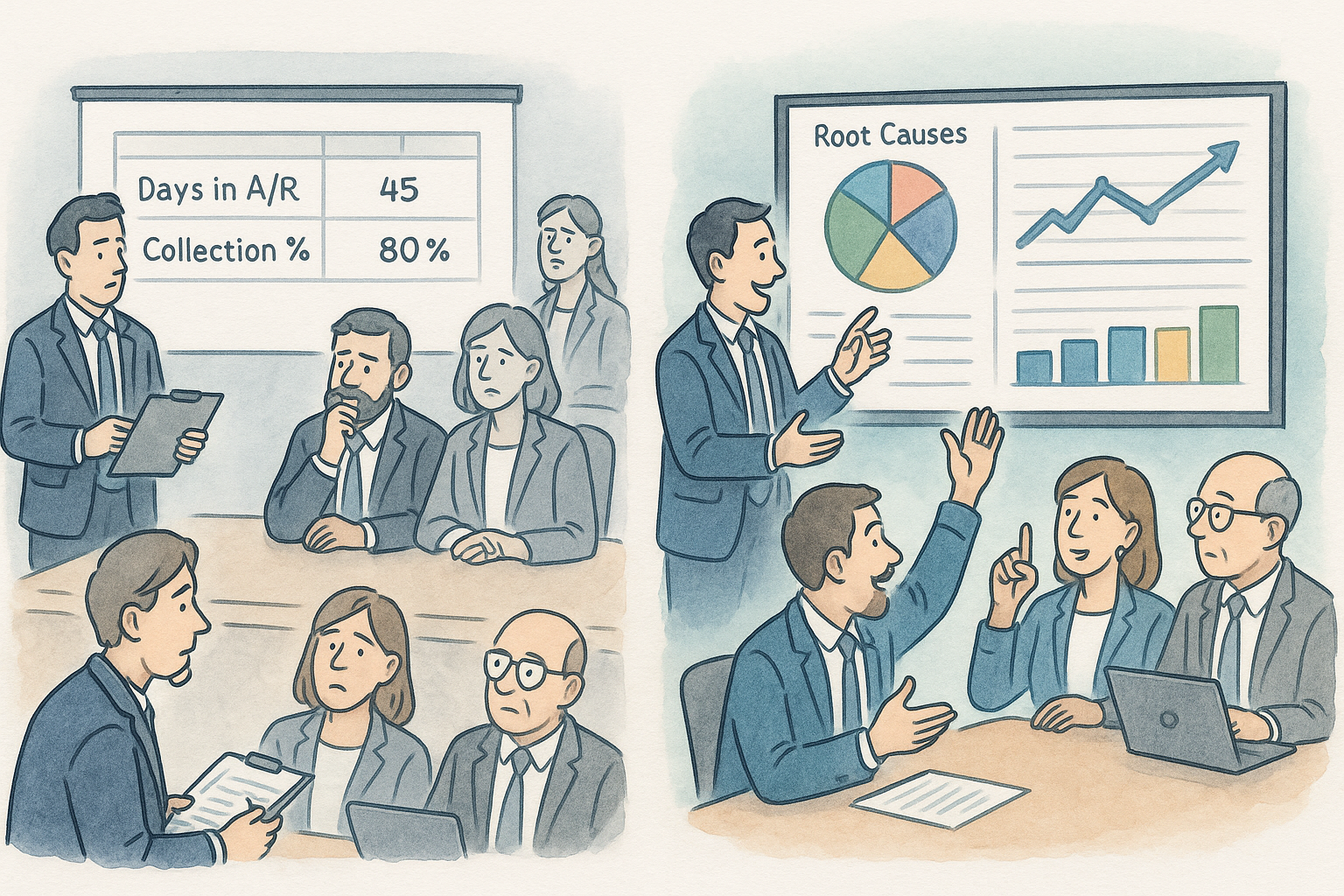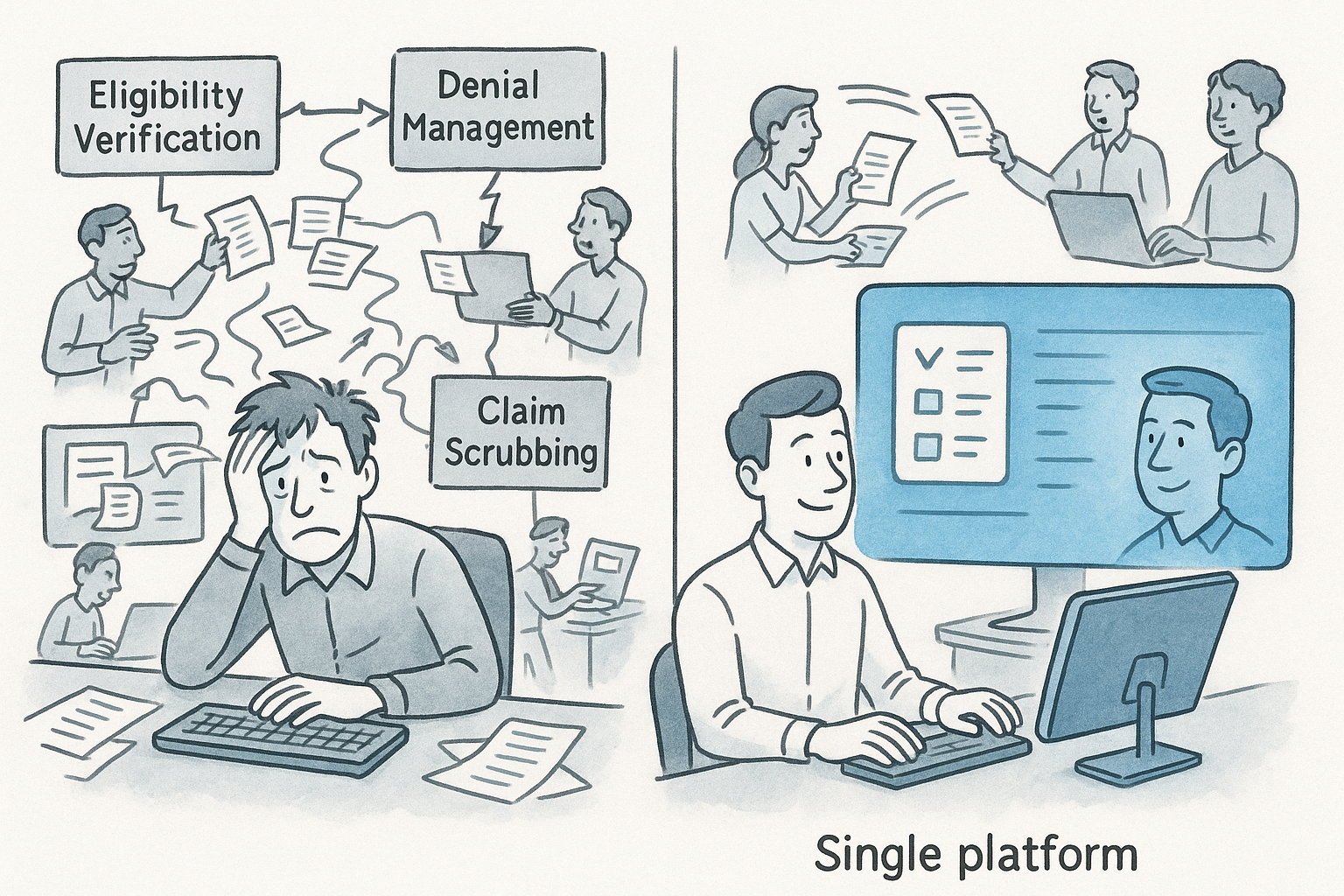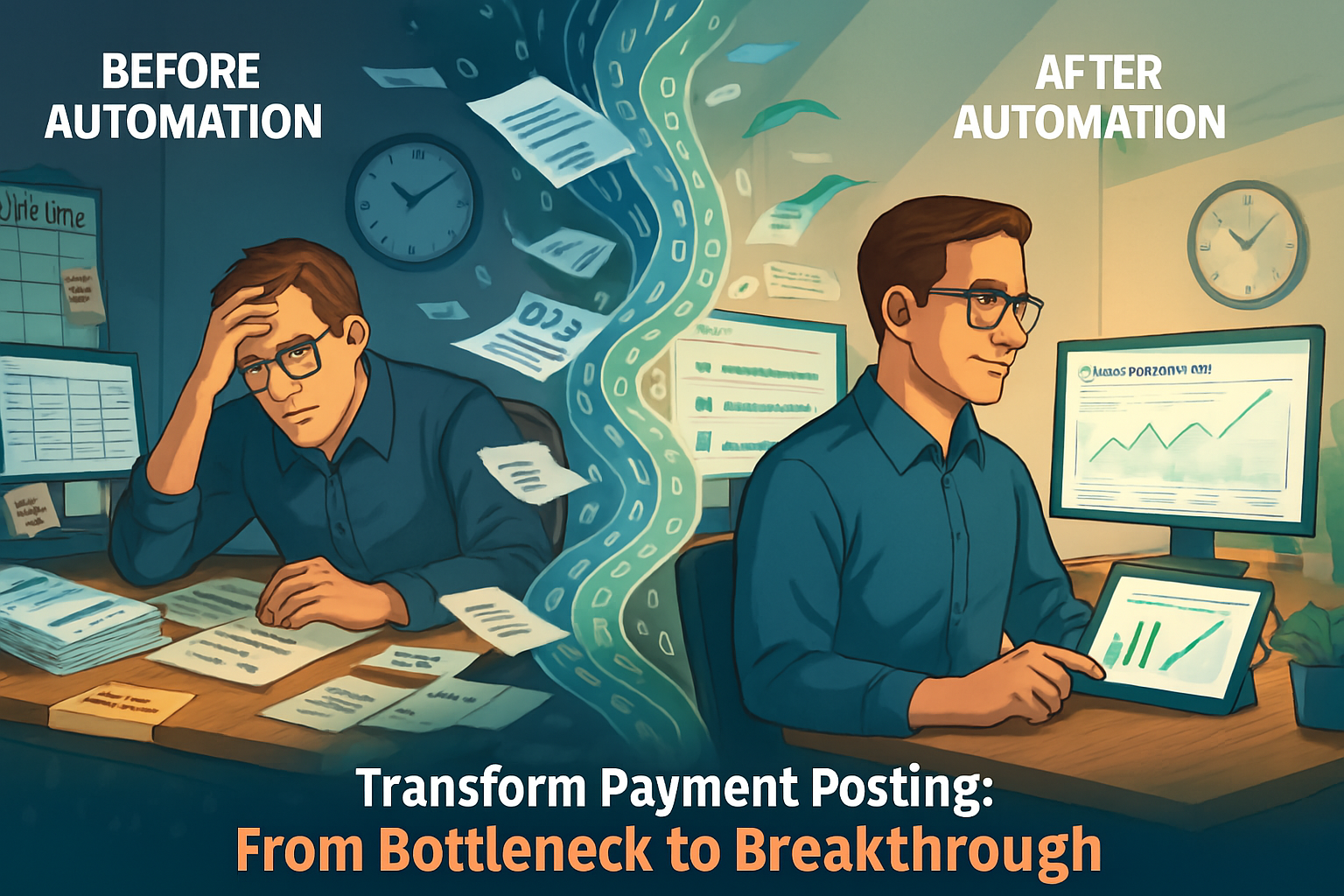Refined RCM Outsourcing: Ensuring Robust Accountability
The RCM data landscape is perpetually challenged by the complexity of insurance plans and patient payment requirements. High deductible plans necessitate greater upfront collections from patients, often resulting in significant uncollected payments that impact overall revenue flow. Furthermore, the rise of Medicare Advantage plans introduces new hurdles such as strict prior authorizations and an increase in denial rates.
The Importance of RCM Data Integrity
RCM data integrity refers to the accuracy, consistency, and reliability of data throughout the revenue cycle. Ensuring data integrity is crucial for several reasons:
- Financial Accuracy in RCM data : Accurate billing and coding are essential for maximizing reimbursements from insurance companies and minimizing claim denials.
- Compliance: Adherence to regulatory requirements such as HIPAA mandates precise and secure handling of patient data.
- Operational Efficiency: Reliable RCM data supports efficient workflow management, reduces administrative burdens, and enhances patient satisfaction.
- Decision-Making: High-quality data is fundamental for making informed strategic decisions, identifying trends, and optimizing revenue cycle processes.
The Impact of AI and Legacy Systems on RCM Data
Insurance payors are now leveraging AI technology to scrutinize claims more rigorously, leading to new denial strategies that challenge existing RCM data processes. Meanwhile, outdated legacy EHR systems compel revenue cycle teams to rely excessively on manual data management methods like spreadsheets, inhibiting efficient operation and data reporting. Despite high expectations, the implementation of RPA automation and AI in RCM has not consistently delivered the anticipated ROI, primarily due to high development and maintenance costs.
Challenges in Staffing and Technology Adoption
RCM leaders face significant challenges in recruiting and retaining competent staff, exacerbated by competitive wages from alternative employers and the inherent complexities of the industry. Moreover, the fluctuating success of outsourcing RCM operations highlights the limitations of narrow technological solutions provided by vendors, which require extensive leadership oversight to implement effectively.
Strategic Focus Areas for RCM Data Improvement
- Enhanced Data Integrity: Focus on the accuracy of EHR data around fee schedules and claims processing. Ensure reliable patient responsibility estimates and timely accounts receivable reporting.
- Staffing and Training: Develop strategies to enhance staff retention and recruitment. Offer continuous training and support to adapt to evolving RCM technologies and practices.
- Vendor Relationship Management: Regularly review and renegotiate service agreements to align with dynamic RCM data needs. Foster transparent communication and collaborative problem-solving approaches with vendors.
- Technology Optimization: Evaluate the effectiveness of RPA and AI technologies regularly. Adjust strategies based on measurable outcomes and ROI assessments.
- Implement Robust Data Governance: Establish clear data governance policies that define data standards, responsibilities, and procedures for maintaining data integrity. Regular audits and data quality checks should be conducted to identify and rectify inconsistencies.
- Leverage Advanced Technology: Utilize advanced technologies such as Artificial Intelligence (AI) and Machine Learning (ML) to automate data entry, detect anomalies, and improve coding accuracy. AI-powered tools can flag potential errors and provide real-time feedback to staff.
- Enhance Training Programs: Continuous education and training for staff on the latest coding guidelines, data entry protocols, and compliance requirements are essential. Providing access to updated resources and conducting regular training sessions can reduce human errors.
- Improve System Integration: Invest in integrated RCM solutions that ensure seamless data flow between different healthcare systems. Interoperable systems reduce the risk of data discrepancies and improve overall data accuracy.
- Strengthen Security Measures: Implement robust cybersecurity practices, including encryption, access controls, and regular security assessments, to protect data integrity from breaches and unauthorized access.
- Regular Data Cleansing: Conduct regular data cleansing activities to update outdated information, remove duplicates, and ensure the accuracy of patient records. This proactive approach helps maintain the integrity of the RCM process.
Conclusion
Adapting to the evolving demands of Revenue Cycle Management requires a multifaceted approach that addresses technological advancements, staffing challenges, and effective vendor partnerships. By focusing on these strategic areas, RCM departments can enhance their operational efficiency and financial performance, ensuring more robust accountability in outsourcing relationships. By implementing robust data governance, leveraging advanced technology, enhancing training programs, improving system integration, and strengthening security measures, healthcare organizations can unmask and address these hidden issues. Ensuring RCM data integrity not only maximizes revenue and compliance but also enhances the overall quality of patient care.

